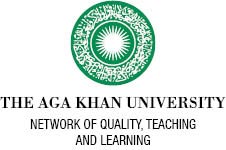TLEW to the RESCUE: A reflective approach to teaching
By: Muhammad Zuhair Yusuf: Assistant Professor: Biological and Biomedical Sciences
A self-reflection of a rookie academician who found teaching to be a labyrinth and a testing ground for nerves. People may not realize on meeting me now that I had once hated to face the audience, preferred to be in a shell of my own and an introvert. Thinking back, I realize that I have travelled far and trust me it had been a steep challenge to surmount.
I recall it was a mundane week, I was minding my own business while preparing a session for the undergraduate teaching. In came an email introducing me to join the Teaching and Learning Enhanced Workshop (TLEW) by Network of Quality, Teaching and Learning (QTL-net). Sometimes fate has it all sorted out for you and all that is needed is the willingness to accept. Although being apprehensive, I took my chances to register for the 6-days workshop that primarily was online, seemed intensive and had both synchronous and asynchronous participations.
On the day of the workshop all the participants joined online and were taken through a rigorous but an interactive course that elaborated on the concept of effective teaching and how to plan our sessions. Each participant in their small groups were to give mini lessons on alternate days and their progress was recorded. The level of interaction was such that apart from online presence from morning to evening, we were given tasks to read documents and to write our understanding on the padlet wall. There were self-reflective feedbacks at the end of each day. There was an adequate use of smart apps in the presentation that kept us clinging on for more.
I use technology for presenting my session and have previously relied heavily on multimedia and PowerPoint slides. Initially I used to have elaborate slides for delivering the desired concepts during the session. The idea was to have a fallback plan in case I need to look back to details. I used to wrongly rationalize it as a bicycle riding approach with the detailed slide being the additional support for each side. The TLEW enabled me to reflect on the ‘concept of teaching that I had acquired via experiential learning’ and on the aspect of ‘how one can teach’. The mini-sessions and peer feedbacks helped improve my presentation style. I now include figures and have bullet points to emphasize the key concepts. I rely more on generating discussions and aim to bridge the understanding of difficult concepts in a simplistic manner to achieve a stronger educational foundation.
An apt phrase by George Evans - a pioneer in special education, that “Every student can learn just not on the same day or the same way” has refined my perspective for approaching a session and to assess the session outcomes. I keep an open approach and tag the students along a story which has paved way to students approaching me after the session with statements like ‘I really loved the session today, thanks!’ and ‘I came to the session as you were leading it and it was superb’. This brings me to another realization that now I need to groom myself about how best to respond to these compliments. These compliments now derive my self-reflection and invigorates my passion to strive for enhancing these experiences for further sessions.
My newfound love for teaching owes to the QTL sessions, as they helped to open my door to rationalized teaching. I approached these sessions with an open mind for change. The facilitators are truly passionate about teaching and has aided me to identify my strengths and helped me to prune my counterproductive learning practices. Just by attending the workshop, the QTL imbibes you into their team with open arms. One such example is that of my TLEW online course tutor - Edward Ombajo Misava; we created a strong cordial friendship that transpired me to be a better academician with a passion to enable my students to become self-directed learners and to be leaders for tomorrow. A dream to live by…!


